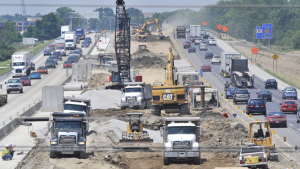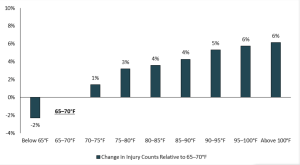The folks at ExamWorks reached out to me a while back about their MSP business, and specifically about a pending acquisition, namely Optum’s Settlement Solutions.
[Note there is no press release for this transaction; Optum requested ExamWorks not do a release.]
That has closed – today – so I can now publish my interview with Exam’s Christie Britt, President of ExamWorks Compliance Solutions… edited for clarity and brevity.
MCM – Why is Examworks focusing on the MSP space?
Britt – ECS has an established long history with MSP compliance, founded as Gould & Lamb in 2004 and merged with MedAllocators, and subsequently acquired by Examworks in 2014. Medicare compliance has become increasingly complicated over the last fifteen years as the volume of liens has exploded and as CMS has taken steps to connect the dots to coordinate benefits. MSP is very specialized, requiring expertise in claims systems, medical expertise, and Medicare compliance. Payers are concerned about being compliant to avoid penalties and the risks must be addressed by specialists.
Our desire to be the leader in MSP compliance drives us to focus on this space.
MCM – How will this help ECS compete going forward?
Britt – ECS will bring to market the largest Section 111 Reporting program with the most file specifications to share data, the largest data aggregation engine, most configurable interfaces to accommodate the smallest to largest reporting clients and the most robust rules engine.
We will also have the largest team of MSP experts in the industry with the most tenured knowledge and experience to service the MSP industry.
MCM – Does ECS offer the full range of MSA/MSP services?
Britt – Yes, ECS will continue to offer the full suite of MSA / MSP Services for all customers. Our core business is and will remain offering a fully integrated Section 111, MSA and conditional payment resolutions solution and tailored to our client’s risk appetite that fit seamlessly into any claim handling program.
MCM – The reporting issue is just one of the components of MSA/MSP services…how does this acquisition impact those other components?
Britt – Section 111 Reporting ties all aspects of MSP compliance together and can no longer be viewed as separate components. We are seeing CMS connect the last remaining “dots” by requiring Mandatory MSA reporting effective April 2025 (See more detail below). This changes the voluntary process of submitting an MSA to the WCRC for review and approval to a required reporting element that may generate a Civil Money Penalty if not handled appropriately.
This acquisition will impact the other areas of MSP compliance by providing a large portion of the industry with a solution that ties all aspects of MSP compliance together from the onset of the claim to its closure, designed to proactively identify claims that needs attention before they become a compliance issue and driving up the cost of the claim.
MCM – CMS continues to waffle around MSP and MSA requirements leading to confusion and uncertainty – and some strong disagreement among payers on core issues. What is ECS’ view on the importance/significance/utility of the MSA/MSP process?
Britt – Medicare has recently announced changes to Section 111 that will require payers to report an MSA amount on all reported workers’ comp settlements beginning with claims (including $0.00 settlements) that settle on or after April 4, 2025.
CMS promises to use this data to deny treatment at the point of sale, communicate with beneficiaries, and (if ignored) enforcement against the claims payer.
In addition, CMS has made a number of technical changes to tie section 111 data with the common working file to better coordinate benefits and pursue recovery for past Medicare payments. Section 111 reporting is an important obligation required under federal law, and because CMS continues to build enforcement activities around it, MSP issues have more claims impacts today than really at any point in the past. Take, for example, Medicare conditional payments (aka liens). CMS continues to misapply Section 111 reporting data and attempt to recover from workers’ comp claims payers for dormant / closed claims and – even if the claim is open and active – for unrelated medical care. For this reason, and many more, conditional payments are a major area of compliance that requires payers to be cognizant of the claims impact of Section 111 reporting.
What does this mean for you?
ExamWorks continues to grow.
Next – what’s up with Optum?












